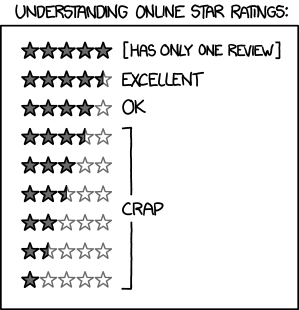Following up on my previous post, on this one I plan to talk a bit about the country's current situation and some (big) challenges and problems it has to solve, and quickly! Having spent the previous three weeks in Rio allowed me to chat to friends, listen to taxi drivers, and read the general news printed on newspapers to get a feel of "sentiment".
Unfortunately, my opinion is that we have all the signs of a bubble ready to burst. Outrageous real estate prices, overvalued currency, etc... Although things have improved a lot and it is obvious that great advances have been made, there are some clear signs that things are getting a little out of line. I heard someone say the other day that Brazil's growth was more of a catch-up with the present (following the lost decade in the 80s) than a new dawn that would allow the country to move up into developed status.
Everything in Rio is horribly expensive, with some things being simply ridiculous. When I moved to the UK in 2002, living costs were way cheaper than in London. I felt like a king whenever I came back for holidays even though I was on a PhD stipend. Nowadays, things are radically different. Most things are cheaper in London and even rental prices, long a plight of London's non-investment bankers, are very close to the ones you pay in Rio.
Let me look at a few factors that might pose a problem:
i) Global Economy: I've actually been more negative about global growth prospects than now. My guess here is that the world will do better than consensus expectations while Brazil worse. Signs from the US indicate that the economic might be getting back on track while China seems to be managing to avoid a hard landing. Big risks to be careful are: (i) the Euro-mess is not sorted (God knows that politicians are trying hard to cause a disaster) (ii) the US recovery is derailed because of the presidential elections; and (iii) real estate markets crash in China. The main danger to Brazil comes from China. Its demand for raw materials have increased tremendously in past years, both in volume and prices. This was great for Brazil but the country's increasing reliance on primary products is dangerous in case international demand goes down. Since 2006, terms of trade have improved by more than 30% and if simply returns to the same levels it will have a big impact on how the current account balance is financed.
ii) Credit Growth: Because of high interest rates and some other problems, private debt to GDP ratios have always been way lower than international averages. Economic growth was bound to make (and was helped by it) grow. And grow it did. In 2003, credit amounted to 24.6% of GDP (for comparison it is way more above 100% in the US and the UK). It went to 40.5% in 2008 and reached 48% in Sep/2011, with an average growth rate of 16.3% even after the crisis period in 2009. Brazilian families' debt levels are at an all-time high and a decrease in growth or an increase in interest rates might trigger a wave of defaults that bring the house the down.
iii) Monetary / Fiscal Policy: Brazil has an official inflation target of 4.5% with 2% upper/lower bound. In 2011, it hit the upper bound but the Central Bank seems to have accepted inflation run above the target rather than increase interest rates (or implement other "macroprudential measures" as they say here) and reduce growth (always a politically tough call). Given that the public sector share of GDP keeps growing and the government does nothing to control a little its expenditures, worrying about inflation should be on investors' minds unless the Central Bank decides to change its current stance.
iv) Real Estate Prices: I might be biased since I've spent all of my time in Rio and the city had lots of good things going for it, but real estate prices are just surreal at the moment. From 2006 to 2010 prices increased by more than 150% and in 2011 alone went up by 35%. A square meter in Leblon costs around 6,000 pounds which is more than in Barcelona and similar to London. You can feel the same kind of madness that was going on in London circa 2008 and we all know how that turned out to be. Even if the nothing happens with the country as a whole, real estate in Rio is doomed to crash. When? I'd wish I knew.
All of these factors are in one way or another related to each other and while Brazil is now enjoying a virtuous cycle, things can change to a bad equilibrium and fall into a vicious cycle (kinda of like Spain and the UK at the moment). Alas, like in many countries, politicians haven't been using the good times to prepare for future lean years.
In the final post of this series I'll talk about the main challenges for the future.









